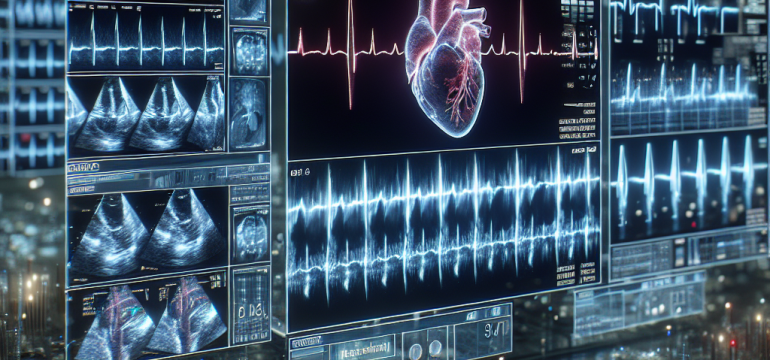HeartGuardAI
Elevator Pitch: Imagine a world where heart disease, the global leading cause of death, can be detected early and accurately with just a quick scan. HeartGuardAI makes this possible with our cutting-edge AI technology, analyzing heart scans in real-time with unprecedented accuracy. We’re revolutionizing heart disease diagnostics, making early detection not just a possibility but a reality, saving millions of lives and easing the burden on healthcare systems worldwide.
Concept
Advanced AI-driven echocardiography analysis for early detection of cardiac pathologies
Objective
To provide a highly accurate, real-time diagnostic tool for early detection of heart diseases using a novel deep learning framework.
Solution
HeartGuardAI uses a novel, proprietary AI that analyzes echocardiography video sequences in real time, utilizing a two-stage deep learning framework that significantly improves the accuracy of cardiac pathology recognition.
Revenue Model
Subscription-based model for healthcare providers, pay-per-use for diagnostics, and licensing of technology to medical device manufacturers.
Target Market
Healthcare providers (hospitals, clinics), medical device manufacturers, and telehealth platforms globally.
Expansion Plan
Initially target developed countries with advanced healthcare systems, then expand to emerging markets emphasizing the system’s low resource requirements.
Potential Challenges
Data privacy and securing patient information, ensuring system accuracy across diverse populations, integration with existing healthcare IT systems.
Customer Problem
The increasing need for efficient, accurate, and early detection of heart disease amid rising global heart disease rates and pressure on healthcare systems.
Regulatory and Ethical Issues
Compliance with medical device regulations (e.g., FDA, EMA), ethical considerations in AI diagnostics, ensuring unbiased algorithms.
Disruptiveness
Offers a groundbreaking approach to heart disease diagnostics, outperforming traditional methods and enabling earlier, potentially lifesaving interventions.
Check out our related research summary: here.



Leave a Reply